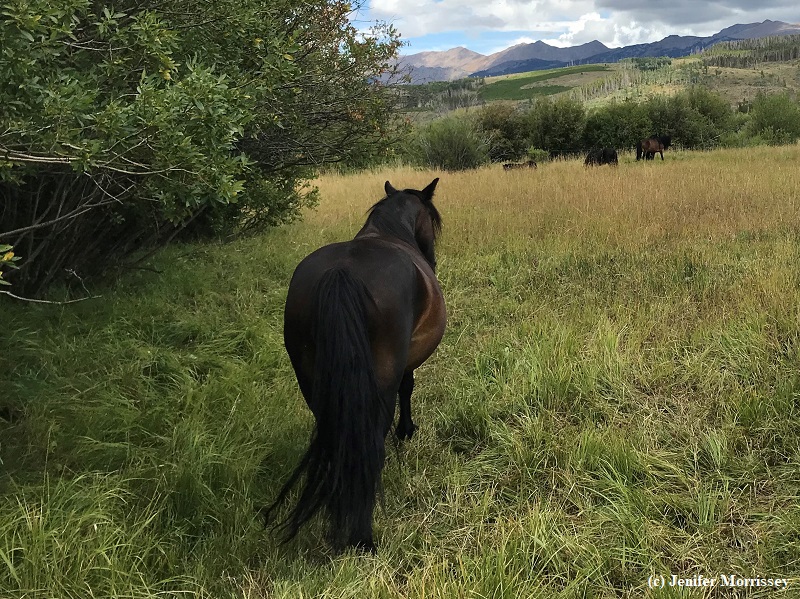Many years ago, I was told by my vet to worm carefully if I ever expected that the worm load was high in a particular pony. He had seen a yearling killed after being suddenly and heavily dewormed; he said it was because the worm burden was too high for the equine to safely eliminate. I have never taken worming lightly since. New research sheds light on the interaction between worms, gut microbiota and inflammation. (1) Reviewing the research gave me new perspective on my vet’s sad story.
The research was conducted in Ireland and studied two different equine populations: a group of yearlings and a group aged 1 to 7 years. Two different wormers were used in the study, though only minor differences in results were observed between the two wormers. There were differences observed, however, in the different, though not rigorously different, age groups.
The major finding of the study was that use of chemical wormers changes the diversity and abundance of the gut microbiota and causes changes in inflammatory markers. The study recorded the gut microbiome characteristics at Day 0, Day 7, and Day 14. The reduction in diversity and abundance at Day 7 was resolved by Day 14. Both groups also showed changes in inflammatory responses from Day 0 to Day 7. In both groups, the inflammatory responses were resolved by Day 14. The inflammatory responses were both local and systemic.
The two groups of equines in the study had different microbiome populations, which the researchers attributed to both age and differences in environments. Also, “The greater magnitude of changes seen in Group 1 compared with Group 2 may reflect a greater malleability of the still-developing gut microbiome in the younger horses, and/or greater numbers of animals in the former.”
I had always been told to treat worming as a medical procedure that required supportive therapies to be effective. Probiotics in particular to restore the gut microbiome were recommended, and this study makes it clear why. It takes up to two weeks for the gut to get back to normal after worming, so asking our equines to continue working during this period without therapeutic support is likely taxing to their systems. Supporting broodmares seems to be especially important according to related research.
In their paper, the researchers suggest several interesting ideas. First, that further research like theirs is easy to conduct because small strongyles are ‘ubiquitous’ in equines, with the worms possibly being present as adults but certainly as encysted larvae that can live up to 3 years in the intestinal wall. This perspective supports the idea that we as equine owners are charged with controlling parasites in our animals rather than getting rid of them entirely. The researchers then go on to suggest that worms may play a role in responses to inflammation in horses, so there may be opportunities to put them to beneficial use. Eradicating them completely, then, may not always be in our equines’ best interest.
When I think back to the sad story told by my veterinarian, it’s clear why a young heavily infested horse might adversely respond to deworming, especially if not supported therapeutically. I have always considered the probiotics on my shelf to be my jug of gold, and this research supports that valuation!
N. Walshe, V. Duggan, R. Cabrera-Rubio et al., “Removal of adult cyathostomins alters faecal microbiota and promotes an inflammatory phenotype in horses”, International Journal for Parasitology, https://doi.org/10.1016/j.ijpara.2019.02.003
© Jenifer Morrissey, 2019
More stories like this one can be found in my book The Partnered Pony, available internationally by clicking here or on the book cover.

